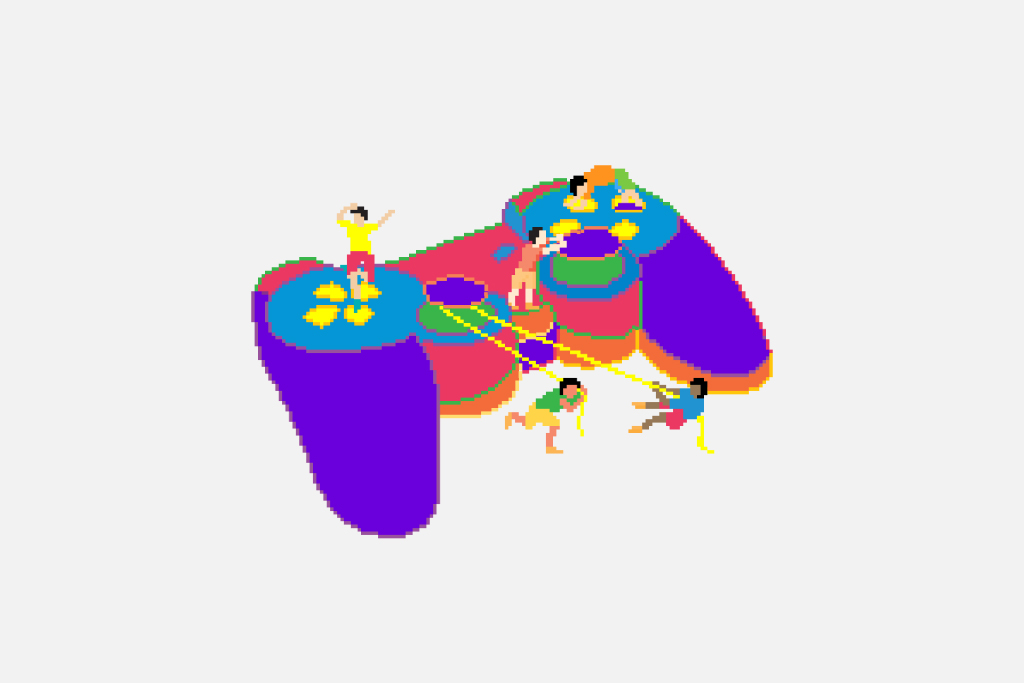
Choice is the defining characteristic of video games. With the exception of “choose your own adventure” novels, no other medium gives us agency over the path or outcome of our experience. Yet, despite being an integral part of every game, the nature of choice in games is often misunderstood; at times it is even used as a pejorative weapon, by those who wish to attack the supposed evils of video games.
The narrative of every scandal involving sex or violence in video games follows a similar pattern (try and spot it next time you encounter such an article.) It goes something like this: game A is called out for giving players the choice of doing some objectionable action. Since the rating board for video games does not allow the most graphic of content to be published on home video game consoles, the objectionable content in question inevitably pales in comparison to that found in movies or even on TV. However, because games allow player choice, they are said to be infinitely worse than their filmic counterparts, for they are no longer merely portrayals of such content, but “simulators” or “training systems.”
This view, that the only purpose of choice in games is to enable the repetition of deviant behaviour, is creatively bankrupt and a depressingly cynical view of mankind. I believe that people are inherently interested in seeing a variety of perspectives on the world. They are curious enough to step out of their bodies and experience things in an entirely new way. I would argue this the motivation for much of the art that has ever been created. Games are another way to facilitate this empathic exercise. So what is the role of agency in games, if not to provide an open sandbox in which to run wild? Allow me to answer this with another question:
If there is only one path to walk down, are you still making a choice if you walk down it?
This is a quandary every game designer struggles with. It is simply not financially feasible to construct a world that allows for an infinite number of choices. Moreover, creating vast parts of the world or alternative timelines that most players will never experience is rarely the best use of (always limited) development resources. Keep in mind; this is not a case of “The suits crushing the dreams of poor game designers.” There are reasons to limit choice from a design perspective as well. Give the player too much choice and they will wander lost through your digital world.
Of course, taking choice away completely is also a poor option. Final Fantasy XIII, a recent entry in a series once known for evoking feelings of discovery and exploration, was heavily criticized for featuring a series of pretty stages that ultimately felt like running down a long, winding hallway. So what are game designers to do?
A common solution is to give players an illusion of choice. By properly establishing goals, and constructing stages that naturally guide the player through them, we feel as if we are forging our own path, even when every step has been anticipated by the game makers. Consider the game Journey, by Thatgamecompany. Journey is a beautiful little game where you are randomly connected with other players over the Internet and together head towards a mountain off in the distance. Despite the fact that the game has a set start and end point and follows a strictly linear path, your decision to travel solo or with a friend, to rush through or take your time, makes each journey feel like your own.
While most mainstream games aim to use choice to empower the player, recent independent games use it to teach a more painful lesson. In Papers Please, created by Lucas Pope, you play a border guard tasked with deciding whether or not people are allowed passed your checkpoint. At first it may seem kind to pass everyone, until you realize that your pay depends on how many people you can process; the temptation of bribes to offset your paltry salary is ever present. You watch your own family suffer each day because of your attempts at kindness, and gradually you start to think like a border guard in a crumbling regime. Every technicality and inconsequential error becomes an excuse to turn people away. Papers Please presents you with choices…but all of them suck. You come out of the experience with a profoundly changed understanding of what it means to be a cog in a misguided machine. It is because games offer us choice that they have to capacity to make us feel helpless by taking it away.
Sometimes the choice in a game can be simply to keep playing. Brothers: A Tale of Two Sons, developed in Sweden by Starbreeze Studios, is a game about two brothers on a quest to find a medicine to cure their dying father. It had several scenes that left me nearly in tears. At times, the physical controller input I was doing to accomplish the task at hand was not challenging whatsoever. But because of how this input was reflected in the game, it was painful to keep pushing my thumbs forward. I made the choice to keep playing because my actions up to that point, every puzzle I solved and enemy I out-smarted, deepened my attachment to the characters and added to my determination to see their quest through.
Not all games are empty slates for us to customize our avatar and live out otherwise impossible fantasies. Two brothers, a pilgrim, and even a border guard…Many games put us into the shoes of specific characters with their own background and constraints. But by thrusting our thumbs forward, we may walk many miles in their shoes.











